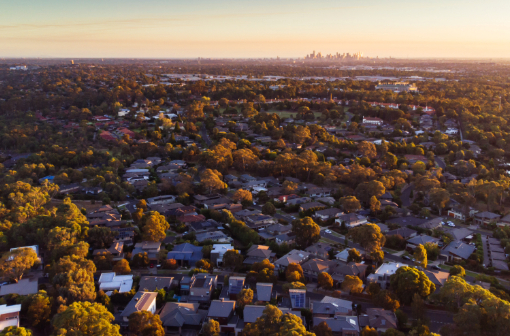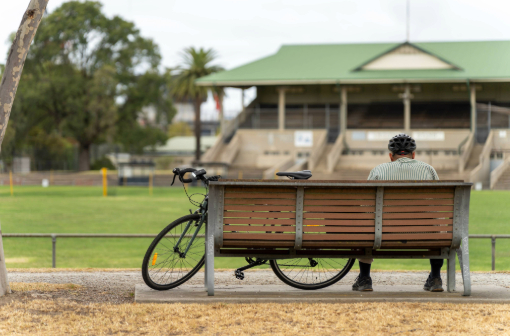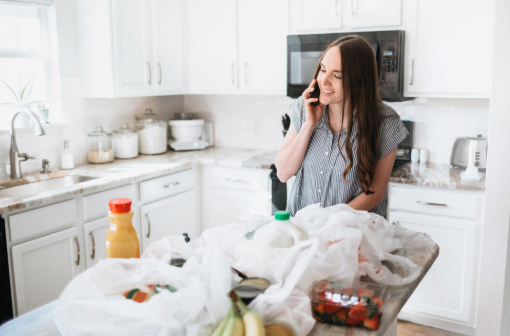“For me, fatherhood is life turned up to 11, both for good and bad. So I’ll sometimes get these amazing moments of heart-warming connection with my kids. But there’s loads of frustration and drudgery involved in the gig, too.”—Luke Benedictus.
Key points
- Our overall wellbeing is directly linked to the quality of our intimate connections-those people with whom we can share our personal thoughts, feelings and hopes in life.
- Australian Unity Wellbeing Index data shows that our wellbeing levels actually hit their highest point after 30 years in an intimate relationship.
- Fathers found to have greater wellbeing than men without children. However, mothers and women without children have similarly high levels of wellbeing.
Samuel Butler believed the notion of “happy families” was something of a contradiction in terms. As the Victorian-era novelist wrote: “‘Home Sweet Home’ must surely have been written by a bachelor.”
Yet Butler’s views are challenged by recent Australian Unity Wellbeing Index data that highlights the importance of our nearest and dearest.
This research, conducted over the past 20 years, shows that our closest relationships are, in fact, part of the “golden triangle of happiness”. Relationships sit alongside “standard of living” (financial security) and “achieving in life” as the three central pillars—or domains—of personal wellbeing.
When it comes to those relationships, the most important is your significant other. The research found that being involved in an intimate relationship is perhaps the most vital component of wellbeing.
That’s not to say that singletons are doomed to lives of hopeless misery—rather, everyone needs someone with whom they can share their personal fears and dreams. Having that support and knowing that you’re loved and valued, can help you to navigate the multiple challenges of life.

Life partners
“Intimate relationships—whether they be romantic in nature, friendships, or family connections—represent our closest relationships in life,” explains Deakin University’s Associate Professor and lead researcher of the Australian Unity Wellbeing Index, Delyse Hutchinson.
“These relationships are founded on mutual trust, love and care. Our intimate connections are the people we are closest to, and with whom we can share our personal thoughts, feelings and hopes in life. In this way, they are vital to our overall wellbeing.”
These relationships also prove to be an increasing source of comfort. Forget the idea of the “honeymoon period”—Australian Unity Wellbeing Index data shows that our wellbeing levels actually hit their highest point after 30 years in an intimate relationship.
Delyse suggests this might stem from the fact that, on a macro level at least, our sense of personal happiness tends to incrementally increase from our mid-50s onwards. But many relationships also get stronger with age.
“Many couples that have been together for an extended period of time have worked through inevitable ups and downs in life as a couple,” Delyse says. “This helps to forge a stronger bond over time.”

Dad behaviour
Our intimate connection to our children is an important part of the relationship pillar, which forms the “golden triangle”.
For men, having children is often described as a positively life-changing moment.
This bears out in the results of the AUWI, where fatherhood has consistently been associated with higher than average wellbeing scores in men. This trend is particularly visible among men in the 46 to 65 age bracket.
"I often say that parenthood is one of the most rewarding experiences in life, but can at times also be the most challenging, for men and women" Delyse says.

"Some men find it pretty challenging, or experience mixed emotions, but overall it is a meaningful experience in life."
Drilling down into the data, what distinguishes the wellbeing of fathers from men without children is a higher level of satisfaction with relationships and a greater sense of community. Somehow having children seems to improve men’s opportunities to forge these vital connections.
“Fatherhood is a time of meaningful growth and connection for men,” Delyse agrees.
“It is an important time when men not only engage more with their children and family generally, but they also often become more engaged in their local communities through children’s sport, hobbies and other activities. These areas of connection can bolster men’s wellbeing.”
The mother load
Intriguingly, the connection between children and wellbeing is less pronounced for women.
Australian Unity Wellbeing Index data shows that women without children have similarly high wellbeing levels to mums.
Part of the reason for this may be that women tend to be more adept at maintaining their social connections and community ties outside of the family unit.
“I think it suggests that women find meaning in many areas of their life,” says Delyse. “This includes motherhood, but can extend to other facets, such as meaningful relationships with one’s partner, family and friends, work engagement, and community involvement.”
Despite all this, the wellbeing benefits of parenthood may not always seem glaringly obvious to a frazzled mum or a dad struggling to cope with toddler tantrums or warring siblings.
Luke Benedictus, co-founder of The Father Hood, an online resource for modern dads, admits the daily grind of looking after his three- and four-year-old boys can sometimes feel like a challenge.

The daily grind
“Has becoming a dad made me happier? That’s surprisingly tricky to answer,” admits Luke.
“For me, fatherhood is life turned up to 11, both for good and bad. So I’ll sometimes get these amazing moments of heart-warming connection with my kids. But there’s loads of frustration and drudgery involved in the gig, too.”
Luke also wonders whether the demands of parenthood have taken a toll on his relationship with his wife.
“Right now, we certainly don’t get much quality time together,” he says.
“There was a line in a film that summed up our current situation perfectly. Reflecting on his marriage, one of the actors says: ‘I feel like I’m running a small kindergarten with someone I used to date’.”
But what fatherhood has done for Luke is to strengthen his sense of purpose.
“As someone who’s perhaps been a bit rudderless at times, fatherhood has turned me into—if not exactly a man with a mission—then certainly a man with a very long to-do list,” he says. “Sure, it’s not all smooth sailing, but I love being a dad.”
Our closest relationships provide us with a vital support network. Whether it’s your life partner or your kids, maintaining close ties with your nearest and dearest can boost your chances of personal contentment.
Disclaimer: Information provided in this article is of a general nature. Australian Unity accepts no responsibility for the accuracy of any of the opinions, advice, representations or information contained in this publication. Readers should rely on their own advice and enquiries in making decisions affecting their own health, wellbeing or interest. Interviewee names and titles were accurate at the time of writing.


